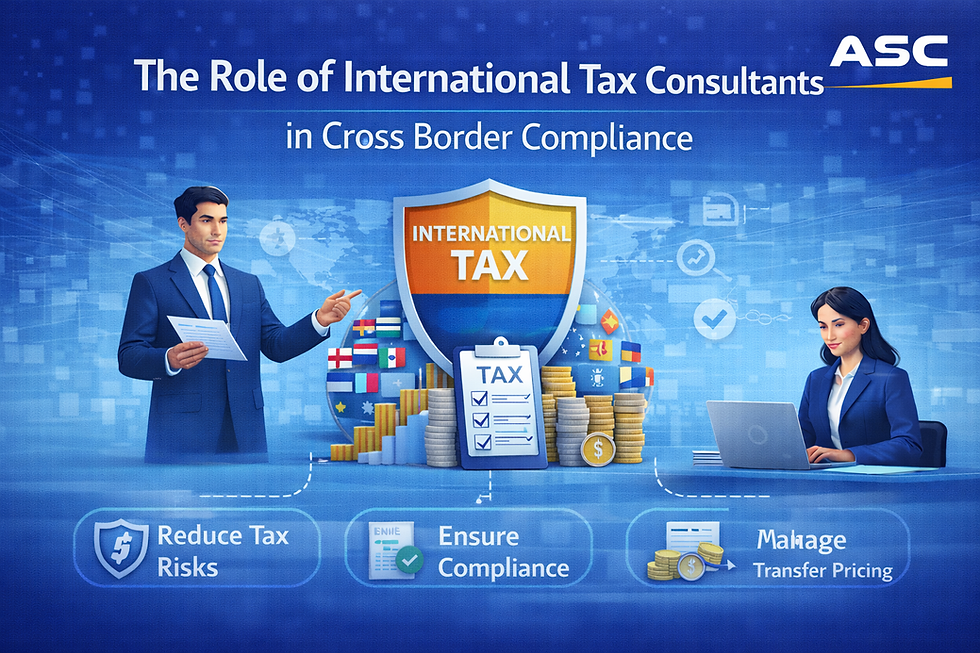What is the difference between BIS certificate and ISO certificate?
- ASC Group
- Jul 24, 2024
- 3 min read
It is impossible to overstate the importance of ISO and BIS registration for forming items and administrations that we use every day. Both organizations are committed to improving standards and ensuring high quality. However, they have some significant differences that need more attention.
ISO stands for the Worldwide Organization for Standardization. This non-governmental organisation was founded in 1947. ISO develops and promotes worldwide standards for different areas such as industry, innovation and administrations. Over 160 national standardization organizations from over 160 countries are part of the organization, which has over 23,000 global measures.
What is BIS Certificate used for?
The Bureau of Indian Standards is managed by the Service of Consumer Undertakings, Food, and Open Distribution in India, a body that is responsible for managing the national measurement organization. The BIS Act of 1996 empowered BIS to be founded in 1987.
BIS has the fundamental capability to establish, maintain, and endorse standards across different industries in India. These guidelines are aimed at ensuring quality, safety, and reliability of items, services, and systems.
BIS also offers certification initiatives, which empower producers to ensure that their products meet Indian standards. The BIS offers certification initiatives for items, empowering producers to guarantee their items meet the essential Indian measures.
What role does ISO Certificate play?
ISO Indian standards can help organizations of all sizes improve their operations. It is a way to guarantee quality, safety, and reliability for their products and services. These guidelines cover a broad range of topics, including social responsibility, environmental management, quality management and administration systems.
ISO is composed of 160 member bodies. Each one represents the national standardization efforts of their respective country. The ISO Certification is composed of over 160 member bodies, each representing their country's national standardization efforts.
ISO standards, although not legally authoritative, are widely recognized and used by companies, governments and other organizations all over the world. ISO standards can help organizations improve their competitiveness, reduce costs, increase customer satisfaction and enhance their reputation.
What's the difference between ISO and BIS Certificates?
Below, you will find a list of differences between the two.
(BIS Bureau of Indian Standards) | (ISO), International Organization for Standardization |
Scope | |
BIS is an organization that can set rules for Indian businesses. BIS standards may be widely used in India but other countries must also recognize and adopt them. | ISO is an international organization that develops and promotes measures for businesses and companies. ISO has established worldwide measures that have been recognized and implemented around the globe. |
Work | |
BIS focuses on standardizing within specific businesses and divisions, with a limited scope. | ISO has made suggestions on quality control systems and environmental management. |
Organizational Structure | |
BIS is a centralized organisation that is represented by the Indian Government. It is recommended that BIS have a greater control over standards creation and support in India. | ISO is a global network of standardization organizations and specialists that works as a decentralized system. |
Certification | |
BIS certifies businesses in India. While India may accept BIS certifications, other countries may reject them. | ISO certification programs are available for a variety of universally recognized standards. |
Adoption | |
India is the primary country that adopts and enforces BIS standards. | ISO standards are adopted by many countries and organizations worldwide. |
Is BIS and ISO certification mandatory in India?
The Bureau of Indian Guidelines (BIS) is a government agency that can create and share measures in India for many different items and administrations. In spite of the fact BIS measures are usually intentional, the government may enforce them now and again as mandatory.
The government has required that certain products be certified by BIS before they can be sold on the Indian market. The "mandatory scheme" includes a range of products, including toys, electrical gadgets and telecommunications gear. These items must be tested and approved by BIS before they can be sold in India.
ISO standards may not be officially recognized in India but they are widely used by both the trade and government sectors to conduct local and global controls. Many Indian companies chose to implement ISO standards to demonstrate their commitment to excellence and to improve their competitiveness in the global showcase.
In India, ISO/IEC 27001 and ISO 14001 have become common to advance operations, improve client satisfaction, and demonstrate adherence to global measures in information security and quality management systems.
How do I obtain ISO and BIS certificates?
BIS Procedure Certificate | ISO Certificate |
|
|
The conclusion of the article is:
ISO and BIS have different ranges, preferences and structures. BIS is an Indian organization that sets business standards, while ISO is a global office that creates and empowers a variety of measures for a range of businesses.
Businesses and individuals need to understand the differences between ISO and BIS in order to make an informed decision about which standards and certifications they should pursue.
ASC Group has you covered with top-tier services at unbeatable prices. Mandatory for selling or manufacturing certain products in India, BIS registration is essential for categories like electronics, automotive parts, and more. Our expert team ensures a smooth certification process.




Comments